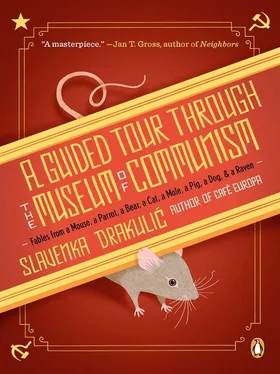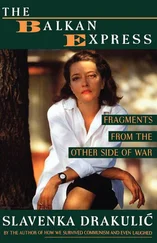But I also asked myself another question: Was this birdlike person perhaps someone she recognized, someone well-known, a public person, so to speak? This might have been her motivation for disguising his identity so carefully and hiding her notes about him. Perhaps, besides her professional consideration, there was another, more personal one—her fear of him? But I asked myself all these questions before finishing my reading….
I realized that she must have written about this case in a coded language. Raven was his code name in the diary; she never mentions his real name, or any other particular characteristic of his looks or profession, except for his symptoms. If discovered, she could have claimed that the man required therapy and had been referred to her just because, in his severe state of acute psychosis, he identified himself with a raven.
However, the question remains—and I can see it in your eyes—why that particular bird, why a raven ? I intuitively sensed that this name held the secret of the story, the secret of the person. I remember from my school days—as you surely do, too—that in Albanian mythology a raven is the bearer of bad news. Often it symbolizes death. It could also be a witness to something horrible. Was the name chosen as an indication she wanted to give to a future reader, to me? As if, by choosing this name for her patient she wanted to prepare me for the kind of problem she had to deal with?
Yes, I believe she was trying to warn me that what I was about to read was a dark, dangerous, perhaps mortally dangerous, story. And yes, she wanted me to read it only after she had gone.
At first, when she suggested the nearby park as their meeting place, he almost went mad with fear! “The other birds might hear us,” he whispered to her. Since under no conditions would Commrade Raven talk to her in the hospital, my mother agreed to see him privately. Mother writes that she had no alternative if she wanted to help the poor creature than to see him outside of the hospital. The “creature,” she writes, thus adding to the ambiguity surrounding the person in question. By the way, this is another word that can have a negative connotation. The more I think about it, the more I am convinced that, in this respect, she deliberately wanted to create confusion for the possible unintended reader.
I have to tell you, I was totally amazed that my mother risked so much to write this in 1981. In my view, this must mean that the creature was someone special in her eyes—that he had a grip on her. Or that he possibly had even threatened her. The further on I read, the more concerned I became about this strange decision of hers to write about it.
Apparently, after they met that very evening, she jotted down that Raven had repeatedly said that he had seen something happen in the house of the prime minister. He could not stop seeing the picture in his mind’s eye. “Blood, very much blood,” he told her. “That word was a trigger,” Mother noted. “Whose blood did you see, Comrade Raven?” she asked him. It took her some time to understand that Comrade Raven, as she continued to call him, was highly psychotic because of the terrible event he had witnessed the previous night.
However, that same evening, during his second visit, he seemed coherent enough to tell her what had happened! Because, if she diagnosed him as highly psychotic, I suppose he could not have expressed himself in the precise sentences I found in her notebook. So, either he was psychotic and the story was constructed from bits and pieces. Or the persona was not psychotic at all , and this was her way of dealing with the information that he, for some reason, had confided to her. This is also a realistic option in interpreting her notes, as you will see later on. It takes a special talent to read between the lines—as we were all trained to do—but at the same time not to overdo it. When there is no information, only symbols, riddles, and guesswork—as was often the case in Albanian newspapers and books—there is a problem. One needs to decide which interpretation is the more plausible.
“It happened during the night between the seventeenth and eighteenth, in the protected zone of the Bllok,” Comrade Raven said. “As it happened, I was positioned on a maple tree near the villa of the prime minister. Perched on a branch overlooking the first floor, I could clearly see his study with its dark-wood desk and old-fashioned lamp, his chair and paintings hanging on the wall. I could also see his bedroom (he sleeps separately from his wife). I perhaps should say that, although there are curtains on that window, on the said night the curtains were not drawn.
“As I am sure you yourself noticed, there was a storm last night. It was raining heavily, strong gusts of wind bowed the trees, and dramatic bolts of lightning created a heavy atmosphere. Ominous, one might say in hindsight.”
Here Mother tried to interrupt him—this word ominous bothered her and she wanted him to focus on it, on his choice of the word—but Comrade Raven indicated that he didn’t want to be interrupted. See, it was already obvious to me that he didn’t want to be taken on as a case, to be analyzed, that is. But Mother didn’t see that yet, which surprised me. She didn’t know that he only wanted her to listen to him .
More description follows, then Comrade Raven comes to the point:
“At first nothing happened. It was already late at night, past midnight, but the man sat there at his desk, almost motionless. After a while he stood up, looking at his watch and then through the window, as if expecting a visitor. A moment later he turned his head toward the door. He did not nod or show any sign of recognition. But I am sure that someone entered his study at this point. However, I couldn’t say that for a fact. I only saw a giant shadow against the white wall in the room. Why do I even think of it as a man’s shadow? I could not say if it was a man’s or a womanʹs; it did not have the distinct shape of a human being or any distinct shape at all, for that matter.
“It is this shadow that bothers me now… For the next few hours, it dominated the room of the minister, somehow looming over him, overwhelming him. No, not for a moment did I see the person who owned that shadow—if indeed there was one. I only saw something, another presence (that would be the most exact word) moving in the room, bending over the man at his desk, the light, the wall… Looking at the scene from outside, it appeared to me as if this shadowy presence was reproving the minister. That it was threatening him. Because the closer it came to him, the more he leaned back in his chair, until he just slumped, covering his face with his hands—as if to protect himself against an assault. It was a desperate gesture, as if he were saying, Why don’t you believe me? and at the same time pleading for understanding—not for mercy, no! I don’t think so, although the atmosphere appeared to me as menacing… And in view of what happened afterward, when the shadow… well…
“Perhaps I should have come closer to the window. But I couldn’t, because of the storm.
“Then the shadow left the room, or at least moved somewhere where I could not see it any longer.
“He was a very proud, I dare say, very stiff man. I am sure he pleaded for understanding. But understanding of what? And to whom? Whose was that ominous presence in his room on that terrible night of the storm? They say that the Devil can be recognized by his lack of a shadow. But I thought afterward—what is one supposed to call a shadow without a man? Can you tell me, Comrade Doctor?”
Well, I certainly am not willing to believe that Raven engaged in such metaphysical questions that evening with my mother. The shadow must have had a distinct shape, you know. It loomed and looked gigantic because of the effect of the light, no doubt. But it was definitely a man who visited the minister, someone he knew well, since he showed no surprise. An old friend, perhaps ? My question is more down-to-earth: Why did Raven (see, I accept the Aesopian language of my mother) spy on the minister that night, unless this was precisely his duty?
Читать дальше












